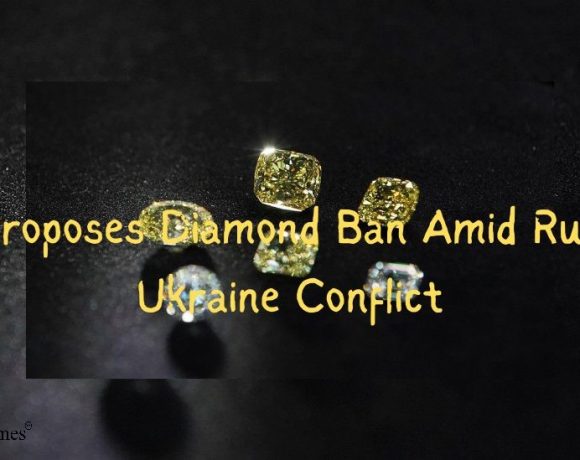
The European Commission has proposed extending sanctions on Russia to include diamonds in response to the country’s invasion of Ukraine. Russia is a major global producer of rough diamonds, with a significant portion coming from mines beneath the Siberian permafrost. The proposed ban is part of the EU’s 12th round of measures against Moscow and is set to take effect in January. While previous sanctions covered various Russian exports, including coal, gas, gold, vodka, and caviar, diamonds had been spared, largely due to Belgium’s efforts to protect Antwerp, the global diamond capital. However, pressure to stop Russian diamond supplies has mounted, with concerns about the ethics of funding the Kremlin through diamond purchases.
Antwerp, which has been a diamond hub since the 15th century, has historically relied heavily on Russian diamonds, with over 80% of global rough diamonds traded there before the war. The proposed ban has led some diamond dealers to seek alternative suppliers, though the shift may result in increased costs for both businesses and consumers. Critics argue that importing Russian diamonds is unethical, as a significant portion of the profits goes to the Kremlin. The US banned imports of rough diamonds from Russia and imposed sanctions on the main producer, Alrosa, in April, linking the trade to the conflict in Ukraine.
The ban faces challenges due to the lack of transparency in the diamond trade. Unlike other products with clear certifications of origin, diamonds often lack traceability, changing hands numerous times between the mine and market. This opacity has made the diamond trade attractive to criminal activities. A significant complication is that 90% of global diamond supplies are sent abroad for cutting and polishing, mainly in India, where they are labeled as of Indian origin. Closing this loophole is crucial for the ban’s effectiveness. However, success depends on India’s cooperation, and so far, Prime Minister Narendra Modi has not reduced economic ties with Russia.
While some argue that the ban may still allow some Russian diamonds to enter the European market, proponents believe it will discourage the purchase of jewelry financing the Kremlin’s war in Ukraine. The diamond industry, particularly in India, remains a significant employer, creating challenges for implementing a ban without causing job losses. Despite these complexities, there is a sense of urgency to address the issue, as Russian diamonds are increasingly associated with war and human rights violations. Belgian Prime Minister Alexander De Croo expressed the belief that EU sanctions will have a meaningful impact on reducing support for the conflict.
Picture Courtesy: Google/images are subject to copyright
